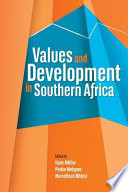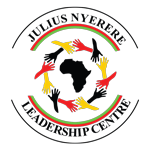
Values and Development in Southern Africa
Author: Hans-Peter Müller, Pinkie Mekgwe, Marvellous Mynard Mhloyi Category: Books (Others), Books at the Centre Publisher: African Books Collective Published: July 27, 2024Development has been on Africa’s agenda for a long time but progress has been both varied and limited, partly due to the diverse levels of the discussions on the challenges and the interventions for tackling them. Africa’s greatest challenge is the uneven development within and between its countries, and the pressing issues of extreme poverty in southern Africa, and the continent as a whole. Poverty causes its victims to suffer social exclusion and political repression. In addition, societies that experience poverty are also mostly under continuous threat of ecological disasters and diseases. All poor people are therefore plagued by loss of freedom and dignity, and are often unable to participate effectively in the political, economic, legal and social processes of their countries. This book focuses on the social and cultural dimensions of development dynamics and, in particular, the role of values in shaping development. Values are at the core of the hopes and aspirations of individuals, communities and societies. The book therefore explains the values that motivate and inform African communities and societies, with a view to facilitating a dialogue about sustainable development in Africa among academics, intellectuals, policy and decisionmakers, and the communities. It also investigates the social and cultural dynamics of development in Africa, as a better alternative to earlier studies that blame African culture for poverty and exclude the people of Africa in their definition of developments in the continent. The significance of this book lies in its provision of a theoretical argument, from empirical perspective, on the role of values in the development of Africa; an argument that is capable of facilitating a dialogue about African development, which obviously proves more useful than either the imposition of a technical process or the announcement of a normative framework.

